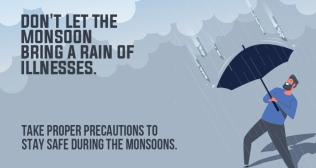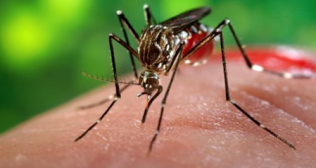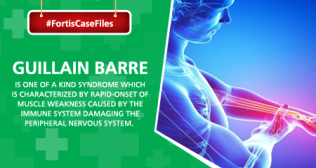Does Cold Weather Affect Arthritis? How To Get Rid Of Winter Rheumatoid Arthritis?
Overview
What is Rheumatoid Arthritis?
Rheumatoid arthritis is an auto-immune condition which is caused as a result of the immune system mistakenly attacking the lining of the joints. This causes joint pain and inflammation which can be incredibly painful. Over a period of time, if left untreated, this condition can cause substantial damage not only to the joints but the cartilage and nearby bone as well.
How Does Cold Weather Affect Rheumatoid arthritis?
For several people who are struck with arthritis, the onset of winter means one thing – a long, hard battle tackling daily aches and pains and dealing with a subsequent increase in discomfort. Studies have long revealed that during the colder parts of the year, individuals living with rheumatoid arthritis and other similar ailments suffer from increased pain in the joints. As a matter of fact, research has proven that a change in the barometric pressure is directly responsible for exacerbating joint discomfort and joint stiffness. This is because a sudden drop in the barometric pressure causes the joints in the body to swell up thus increasing the pressure on the nerves that are responsible for controlling the pain centers present in the body. Simply put, as the mercury levels drop, the body swells up, thereby causing the pains, stiffness, and aches to become more prominent.
Another theory is that during colder months, the body tends to conserve heat thus increasing the blood flow to organs lying in the body center – such as the lungs and heart. When there’s an increase in the blood flow, the arms, shoulders, legs, knee joints and blood vessels constrict. A lesser flow of blood thus leads to those areas feeling stiffer which, in turn, causes pain and discomfort.
Further, there’s data to back this up as well – as per a study conducted by Reumatologia Clinica, it was found that there’s a 16 percent increase in flares owing to the chilly weather conditions. And this is not only limited to people suffering from rheumatoid arthritis. Even individuals suffering from osteoarthritis have reported the same pain. This coupled with a sedentary lifestyle can only make matters worse. However, it’s not all doom and gloom. For individuals suffering from arthritis pain, there are proven ways to get some relief from the pain.
Steps to Get rid of Winter Rheumatoid Arthritis
Shed those extra kilos
For obese or overweight people, its imperative that they lose weight as it can reduce the pain associated with arthritis. As per an article published in The Journal of the American Medical Association, it has been suggested that weight loss combined with exercise and a dietary plan can directly lead to a lasting improvement for people suffering from chronic joint pain. Moreover, losing weight leads to an increase in mobility while reducing the stress on the joints. This helps in decreasing pain and also preventing further damage to the joints.
Hydrate
Although most people advocate drinking water during dry and arid months, it’s equally important to stay hydrated during winter as well. As per a study published in the September 2015 issue of the journal Experimental Physiology, it has been reported that even the slightest case of dehydration can increase the body’s sensitivity to pain. To compensate for the loss of fluid during the cold weather, one should drink adequate amounts of water as it will help reduce the friction between the surface of the joints.
Eat right
Lesser sunlight equates to vitamin D deficiency. People suffering from rheumatoid arthritis tend to have weakened bones while being more prone to fractures. Low levels of vitamin D can also aggravate inflammation and arthritis. Which is why it’s important that such individuals supplement their body by consuming vitamin D-fortified foods such as salmon, oysters, milk, orange juice, egg yolks etc. Eating a healthy, balanced diet is a step in the right direction as it can help reduce inflammation in the body. In addition, Omega-3 fatty acid rich foods have also been proven to reduce joint pain and stiffness. As per a study at Australia’s Royal Adelaide Hospital in 2006, it was reported that consuming 4-5 grams of omega-3 fatty acids a day has doubled the chances of individuals suffering from rheumatoid arthritis going into flare-free remission.
Stay Active
Staying active promotes flexibility in the joints and is a great way to keep the joints moving and well lubricated. Individuals suffering from arthritis should, therefore, make it a point to exercise regularly as it can help maintain bone strength. Further, regular exercise such as walking & cycling also helps in strengthening the muscles around joints, increasing energy levels, reducing stiffness, and avoiding the chances of getting obese.
Keep Warm
While staying active is important, it’s equally crucial that one wears several layers of clothing to stay comfortable when the temperatures drop. Depending on the weather conditions, it’s vital that one covers up and wear a jacket, scarf, and gloves while stepping outdoors. This helps in protecting the body from the cold while also helping trap the natural body heat.
The Bottom Line
While little can be done about the weather, rheumatoid sufferers can make it easier for themselves by tweaking their habits. Even small measures such as drinking a cup of hot tea or hot chocolate can go a long way in keeping warm and keeping pains at bay. Although there’s no substantial evidence on how winter affects the severity of arthritis pain, one thing for certain is that there’s a definite link between winter and arthritis pain.















}}drupal-data/images/blog-lists.png)


